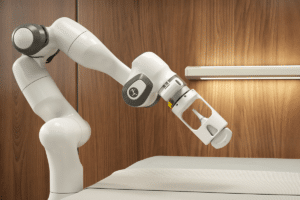Table of Contents
The covid 19 pandemic changed the healthcare system all over the world. Where it changed our mindset towards the healthcare industry. It encouraged the distant care model called Telehealth.
Telehealth helped us control the spread of the Covid-19 virus. It created a lot of challenges, with cybersecurity being on the top of the list.
According to stats of the Center for Disease Control and Prevention (CDC), in recent years, the use of telehealth models increased hugely, and in just last year, the telehealth visits increased up to 170%.
With the increase in Telehealth, the health industry also observed a 70% increment in cyber attacks on their systems, devices, and machines, according to CISA.
There is no shocking element in the recent data breaches and ransomware attacks. As the world is going towards digitalization, cybersecurity is the main problem that has to be solved. And instead of implementing any new technology in the health industry, we have to create proper plans for its cybersecurity. Or we could have devastating effects on healthcare due to the technology’s vulnerabilities, said Dr. Josh Michaud, a global health policymaker.
Furthermore, according to Researchgate, the World Health Organization (WHO) has released the latest report, which warns about a massive increase in cyberattacks on the healthcare industry.
To counter those threats, WHO has released a list of recommendations for the healthcare sector around the globe, which could help the industry take precautionary steps to maintain cybersecurity in the healthcare industry.
1. Hire cybersecurity experts
The WHO, in its report, recommended the healthcare organizations hire cybersecurity experts to create a strict online telehealth system to avoid potential threats to the personal and health information of the patients and those organizations.
Because the only thing that can safeguard the industry is the strict and invulnerable system, which is possible through modern security measures and cybersecurity experts.
2. Utilization of Encrypted channels
Encryption is still one of the strong protective measures against cyberattacks. Whether the system is used by the organization, or the patients and customers, the data transmission must only be done through encrypted channels.
The HIPAA act also directs the healthcare entities located in the United States to use encrypted channels for the data transition. It helps in data protection by sending enciphered data to the attacker even if those succeed in gaining access to the system. Hence giving no benefit to the cybercriminals.
3. Use NETOP for Telehealth
The telehealth facility helped the public in the Pandemic era. It also paved easy ways for cybercriminals to attack the system—experts from WHO recommend NETOP for easy and secure remote access.
Because, being immune to the most hacking techniques, NETOP remote control is considered the most impactful solution for remote access systems. Therefore, the critics suggest that the healthcare industry uses NETOP to decrease the chances of attacks.
4. Implement a Zero trust policy
Creating immune passwords, using encrypted data, or implementing regular updates is always an impactful way to protect data. The only way to access the information is the passwords, and passwords need to be given to the employees working in the industry.
There should now be a trust policy even for the healthcare employees. Because there have been several cases where the employees have been involved in such cybersecurity attacks intentionally or unintentionally.
Besides, the provision of proper training to the employees is also mandatory. According to the stats, 20% of the cyberattacks are successfully implemented due to the employees’ ignorance working in the organization.
5. Regularly update the system
One of the most impactful ways to resist cybercrimes is to update the system regularly, which is applied by almost every digital entity from the payments system to devices’ operating systems.
Regular updating of the system helps to decrease the vulnerabilities and create further blockage for the attacks. The regular update to the system points toward enhanced and fresh security, which discourages the cyberattacks on the system, says Joseph Steinberg, a tech advisor and influencer, and ex MIB employee.
The Healthcare industry is one of the fastest industries being digitized at a higher ratio. Therefore, these entities have to take strict actions regarding online data protection because healthcare systems have crucial vulnerabilities.
These systems include personal info, credit card data, and other valuable information, which could be worth millions of dollars in the darknet, and as a result, grab the attention of cybercriminals.







